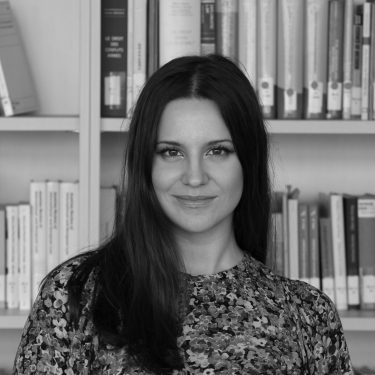Welcome to another interview of the Völkerrechtsblog’s symposium ‘The Person behind the Academic’! Through this interview, we will try to learn more about the interests and sources of inspiration of Prof. Marco Sassòli.
Welcome Prof. Sassòli and thank you very much for accepting our invitation! It is a great pleasure to have you in our symposium.
Having attended your recent lecture in the context of the Knut Ipsen lecture series, I remember that you mentioned an incident that followed your interview on the Swiss radio: After you mentioned that as long as Ukrainian forces defend every house in Mariupol, Russian forces may attack every house there, social media users burst into critical comments. If I remember correctly, you did not respond thereto. May I ask, as a follow-up, why did you choose not to react to these criticisms? And what is – from your viewpoint – the role of academics in the academia-society relationship, at times when the public seems less open to hard truths?
I did not respond because those users were right under jus ad bellum: Russia, the aggressor, may not attack anything in Ukraine under the prohibition of the use of force. My statement was limited to international humanitarian law and from then on, I formulated it more carefully in the following way: “As long as Ukrainian forces defend every house in Mariupol, Russian forces do not violate IHL if they attack every house there” (subject to the proportionality rule and the obligations to take precautionary measures if civilians remain present). I think it is important to explain international law to non-specialists and I try to do so when the media ask me but I have no time to do so on social media, where the crucial mediator, the journalist, is lacking and where too many people write in bad faith and do not really seek to understand.
Could you tell us what sparked your interest in international law in the first place and how you decided to follow an academic career?
I am basically a lawyer. I don’t think anyone can be a good international lawyer if she does not like law. However, I also like other countries and cultures. Therefore, I tried to combine my two interests. It is only later that I discovered how a fascinating phenomenon of law international law is: a law, which is law, but basically without a legislator, without a judge and without police. As for academia, I joined it only at a later stage. I first practiced law for 13 years with the ICRC at the headquarters and in the field and then for a shorter time, as “greffier” (a word which cannot be translated with “registrar”, because in the Swiss system “greffiers” actually draft decisions) at the Swiss Supreme Court. It is only when I discovered that I liked teaching and interaction with students that I joined academia.
What is your favourite and least favourite part of working in academia?
My favourite activity is teaching. In no other job you have such a success rate, because everyone in class, even those who fail, know much more at the end of the course than in the beginning. And you may have the illusion that this is thanks to you. The following semester, there are new students and the same satisfaction is guaranteed. My least favourite activities are the ever-increasing bureaucracy – and fundraising because you have to lie to be successful.
Which would you say are 3 books/authors that have influenced your perception of justice the most?
I am still one of those dinosaurs who distinguish justice and law. On law, I am still influenced by four very different authors: Hans Kelsen, Gustav Radbruch, Roberto Ago, and my academic teacher Luzius Wildhaber. I apologize that I do not mention Martti Koskenniemi. I prefer those who construct over those who deconstruct.
Maybe it is not dinosaurs who do that… Maybe it is realistic minds that do so.
Which is your greatest disappointment with international law?
That States do not understand that it would be in their interest to respect it.
From your writings one can tell that you are a rather doctrinal author. Could you tell us what has influenced your choice to follow such a doctrinal approach to international law?
I feel flattered – or I do not understand what you mean by doctrinal. You are the first person who makes this compliment to me. I think I am a rather practical author searching for practical, pragmatic solutions to real problems, while nevertheless respecting the ideal of the rule of law.
Happy to be this person! May I assume that you try to give such pragmatic solutions because you believe that they are more likely to be followed in practice?
Yes, you are right.
Which of your publications is your favourite one? And which of them is your least favourite?
Sorry, I am professor in Geneva, a Calvinist town, where one should not promote oneself but rather let others decide what is good in what you do. As for the least favourite ones they resulted from conferences where I was invited to speak and then obliged to publish in the proceedings and I either did not really master the subject or wrote again (hopefully in other words) what I had already written elsewhere – thus making life more difficult for researchers.
Have you ever felt threatened/afraid during your professional trips?
No, because I had even in conflict areas the chance to be subject only to the same risks as all the others around me.
Which is the professional achievement that you are proud of the most?
That many of my former students have become successful international lawyers or humanitarian practitioners all around the world – and some have become professors. My greatest moment of pride was when I went with two generals into a faraway country in the framework of a commission of enquiry and I was received at the entrance of two different ministries by former students. This allowed me to explain to the two generals: “A professor has his soldiers everywhere”.
Ideally, whom would you want to find waiting for a meeting with you outside your office next Monday?
My chance is that my dream is reality: my assistants. I had the extraordinary luck that I had only excellent, committed and very humane teaching assistants.
Which was the most recent concert that you attended? Which type of music do you enjoy the most?
Last time I listened to Ravel, but this is some time ago and I have to confess that I am not a great music fan.
That I find very interesting! I have only heard this from you and a teacher, who taught us literature in high school. I would then switch this question with the following: Do you have a favourite poem and/or theatre play?
I am sorry that in this respect too, I am classical and my preferred theatre play is influenced by my professional interests and values: the drama of Antigone in all its versions, from the original by Sophocles to the versions of Anouilh, Vittorio Alfieri and Bertold Brecht. As for a poet, I like Antonio Machado, perhaps because we both love Castilla, although we are not from Castilla.
Which was the biggest struggle during the drafting of your PhD thesis? Which advice would you give to PhD students that will read this interview?
To find the appropriate structure. Once I have it, writing is a pleasure, before that suffering. The advice is that which my doctoral supervisor, Luzius Wildhaber gave me when I explained to him at length why different options for a structure all had their disadvantages: “Why don’t you write this?”
Thank you very much once again, Prof. Sassòli, for participating in our symposium and for taking the time to respond to our questions!

Marco Sassòli is professor of international law at the Faculty of Law of the University of Geneva as well as associate professor at the Université du Québec à Montréal, Canada. He is commissioner of the International Commission of Jurists. From 1985-1997, he worked for the International Committee of the Red Cross (ICRC).

